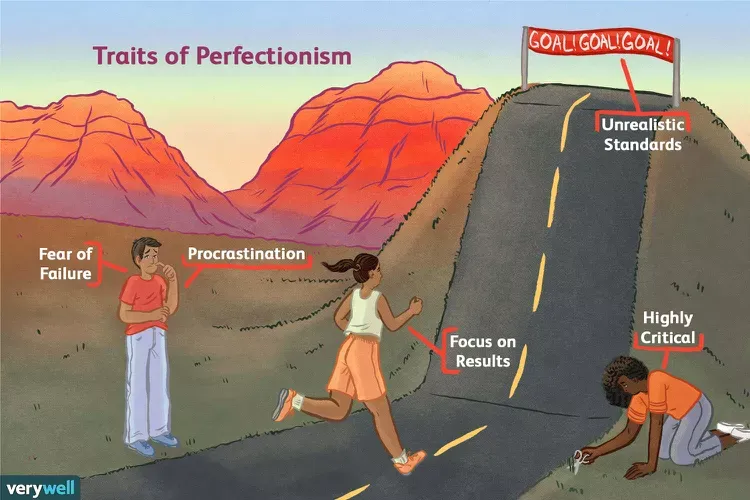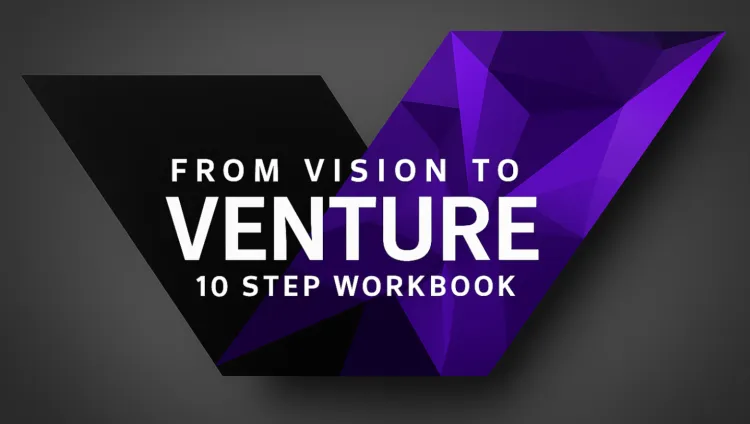Perfectionism and procrastination are intertwined psychological constructs, often manifesting together as two peas in a pod of the same behavioral pattern.
In order to go on living, one must try to escape the death involved in perfectionism.
Hannah Arendt
The Psychology Behind Perfectionism & Procrastination
Trying to be perfect is not easy. It takes up an insane amount of meticulousness, attention to detail, and time-consuming diligence. Perfectionist tendencies usually are closely tied to fear and insecurity – fear of lower performance and not being good enough. Having high standards is not innately wrong but excessive perfectionism can manifest in various ways, such as negative self-sabotage, avoidance of failure, an unhealthy obsession with minutiae, difficulty letting go of control, and tense relationships due to your unforgiving pursuit.
Procrastination can be seen as a symptom of perfectionism, where the fear of not meeting high standards or worse the fear of failure leads to delaying or avoiding the task altogether. Research has found that a perfectionist who isn't able to adjust to their situation or environment – called maladaptive perfectionism – is often more prone to procrastinate. Do you fight with that voice in your head that tells you – that you are not ready? Not yet, maybe next year. If only you do so and so or had this and that...? 😔
Origins of Perfectionism:
■ Fear of failure & making mistakes
■ Desire to please parental expectations
■ Struggle with insecurity or insufficiency
■ Wanting to be admired or loved by others
■ Early childhood parental attachment problems
■ Issues such as anxiety & obsessive-compulsive disorder

Strategizing Success: Your Arsenal Against Perfectionism
Perfectionism can often be a deceptive enemy, an alluring delusion that seems to promise greatness but instead leads to stagnation and counter-productivity. There are clear distinctions between perfectionism and a healthy determination toward the things that matter to us.
If you genuinely want to be a high achiever, you’re bound to do some things imperfectly.
Alice Boyce, psychologist & author of the book: The Anxiety Tool Kit
Picture yourself embarking on a journey, where instead of being paralyzed by the fear of making mistakes, you courageously accept imperfect action, understanding that progress, not perfection, paves the road to success.
Failure is
— M O R E (@OwnFoundations) February 20, 2023
Focus On The Big Picture
A growth mindset is a powerful tool that transforms mistakes from daunting failures into valuable opportunities for learning and improvement. Remember, mistakes are not bad. This journey is not a quest for perfection, but a pursuit of continuous growth, where every stumble brings you one step closer to your goals, every challenge strengthens your resilience, and every lesson fuels your drive to succeed.
The Pareto Principle
The Pareto Principle, also known as the 80/20 rule, suggests that 80% of results come from 20% of the effort. Only 20% of your effort!! 👌
Originally observed by economist Vilfredo Pareto, it's often applied in business, where, for example, 80% of sales might come from only 20% of your clients. It's a general principle that can save you a great deal of ineffective time and effort for something more productive and profitable. Perfectionists always want to keep working, going, and going but the end result is rarely satisfying nor effective. Apply the Pareto Principle and stop putting effort into unimportant things – save your time for only things that really matter. Recalibrate your standards.
Create A Checklist
If you have a perfectionist "all-or-nothing" mindset, it would be very helpful for you to make a list that you can follow with measurable, smaller goals which then can be easily checked off and considered done.
Make your goals SMART:
■ Specific
■ Measurable
■ Attainable
■ Relevant
■ Time-based

Todoist Pro 2 Months Free
“Todoist is the number one to-do list app”– PC Mag
The essential tool to prioritize, delegate, and manage your projects. Tasks can be assigned labels, color codes, priorities, and can be grouped into projects. Once you begin to expand your business, it is great for managing remote support. Whereas other tools we have tested need a stable internet connection, Todoist can work offline (e.g. on the beach) and still have full access to all your data, which syncs automatically the next time you go online.
This is an affiliate link.
Give Yourself 10 Minutes
Start a task and work on it for simply 10 minutes. The important mindset shift which comes with this exercise is towards progress and not final results. In these 10 minutes, you have started something – something that perhaps you have not dared to begin. You get into the mindset and habit of simply starting and focusing on its progress.
Ask For Feedback
Ask your partner, colleagues, or someone for their feedback or perspective when you feel yourself falling back into the cycle of self-doubt and tendencies. Talk through the circling ideas and details in your head. Rework and restructure them together to shake off your fear of them not being good enough. Challenge your negative thoughts. It is about seeking a diversion and deliberately breaking your repetitive cycle with the help of others so that eventually you build the skills to become capable of reworking things without their help.
Remember, this is a process that will take time and patience. But you got this!
Don't let fear hold you back from achieving your goals.
— M O R E (@OwnFoundations) May 4, 2023
– OwnFoundations




